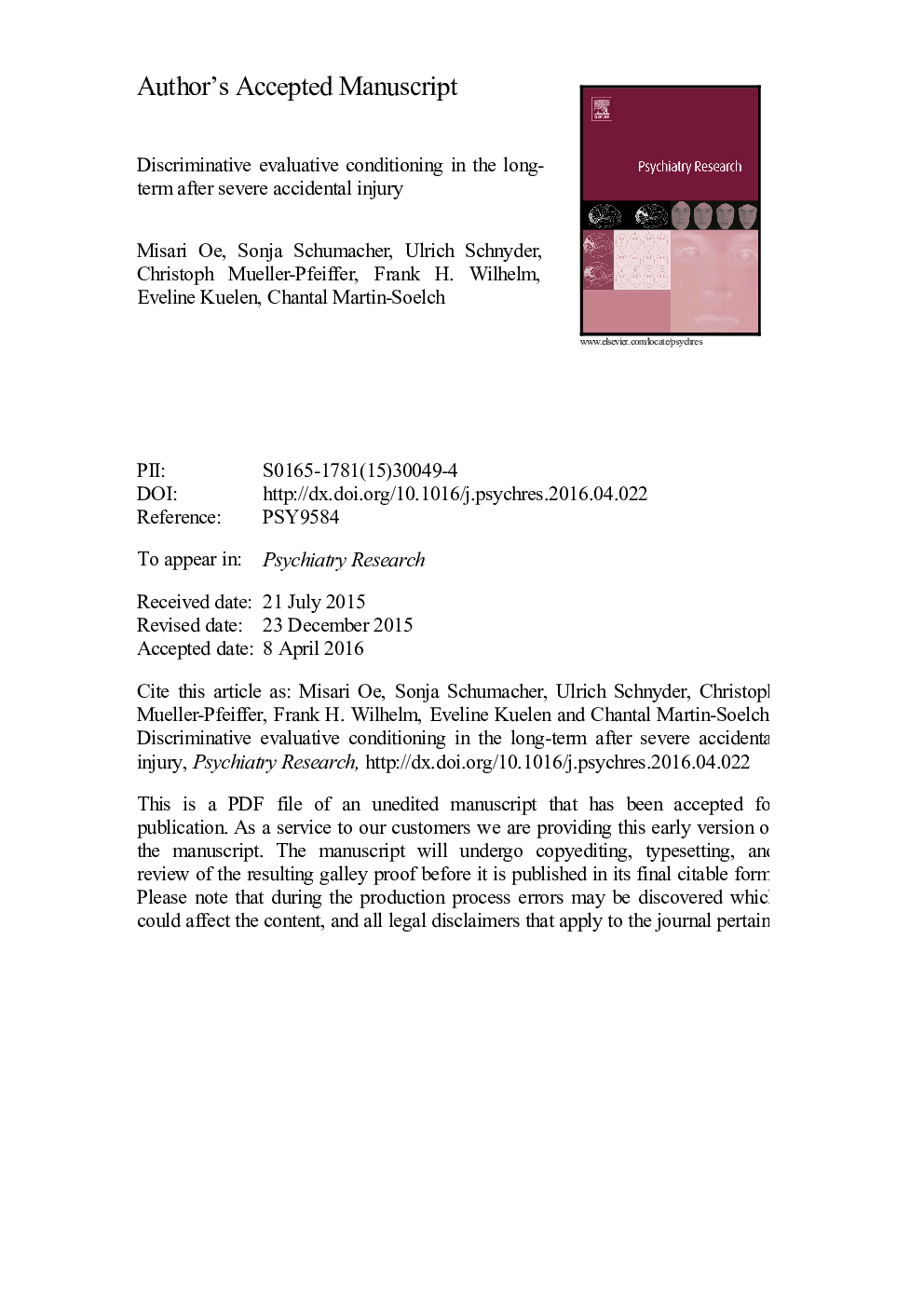| کد مقاله | کد نشریه | سال انتشار | مقاله انگلیسی | نسخه تمام متن |
|---|---|---|---|---|
| 6813268 | 545643 | 2016 | 21 صفحه PDF | دانلود رایگان |
عنوان انگلیسی مقاله ISI
Discriminative evaluative conditioning in the long-term after severe accidental injury
ترجمه فارسی عنوان
تهدید ارزیابی محرک در طولانی مدت پس از آسیب شدید تصادفی
دانلود مقاله + سفارش ترجمه
دانلود مقاله ISI انگلیسی
رایگان برای ایرانیان
کلمات کلیدی
موضوعات مرتبط
علوم زیستی و بیوفناوری
علم عصب شناسی
روانپزشکی بیولوژیکی
چکیده انگلیسی
Impairments in classical fear conditioning and deficits in discriminative learning are observed in posttraumatic stress disorder (PTSD). However, it is unknown whether similar impairments can be found with types of discriminative learning other than classical conditioning, such as evaluative conditioning (EC), in which the valence of a stimulus can be transferred to other stimuli. In this study, we investigated whether EC is also influenced by traumatic experiences independently of presence of PTSD. We tested 14 accident survivors with remitted PTSD, 14 survivors without PTSD, and 16 non-trauma controls. We used behavioral measures, psychophysiological indicators, and subjective ratings for tasks. General effects of learning were observed across groups and conditioning/extinction. Trauma controls had slower reaction times (RTs) to the aversive conditioned stimulus compared to appetitive conditioned and neutral stimuli, as well as slower RTs and increased accuracy during conditioning than during extinction. Remitted PTSD participants showed opposite results, demonstrating decreased accuracy and slower RTs during conditioning as compared to during extinction. No discriminative effect was found in the non-trauma controls and the remitted PTSD participants. These results suggest that a traumatic experience influences EC, and that this influence differs between individuals who have and have not developed PTSD after traumatic exposure.
ناشر
Database: Elsevier - ScienceDirect (ساینس دایرکت)
Journal: Psychiatry Research - Volume 240, 30 June 2016, Pages 144-150
Journal: Psychiatry Research - Volume 240, 30 June 2016, Pages 144-150
نویسندگان
Misari Oe, Sonja Schumacher, Ulrich Schnyder, Christoph Mueller-Pfeiffer, Frank H. Wilhelm, Eveline Kuelen, Chantal Martin-Soelch,
